Arts and crafts activities can influence outcomes for patients and aid recovery
The use of art has long been identified as a means to reduce stress and anxiety, as well as lower the risk of developing memory problems.
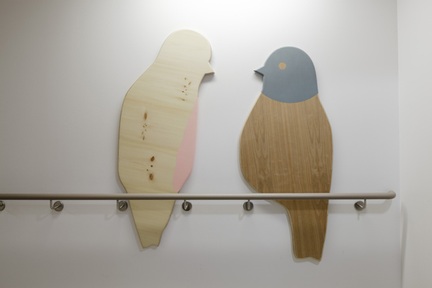
There are a number of charities and organisations providing arts activities for people in hospitals, care homes and those receiving domiciliary care.
A spokesperson for Arts Council England, said: "The Arts Council believes that arts and culture can make a major contribution to key health and wider community issues. The arts are a critical factor in social engagement well-being is not just about the physical but the psychological and social, and active participation and engagement in the arts can lead to improvements in our health.
"The arts work everywhere in our communities; helping the retired, the marginalised, the lonely and the sick."
A recent study revealed that people who participate in arts and craft based activities can experience a reduced risk of developing Mild Cognitive Impairment (MCI), which can sometimes lead to dementia.
'Art helps the retired, marginalised, the lonely and the sick'
The study published by the American Academy of Neurology, monitored more than 250 people with an average age of 87 who had no memory problems when the study began, however after four years almost half of participants had developed memory problems.
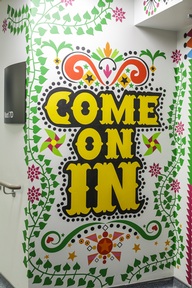
Research manager at Alzheimer’s Society, Dr Clare Walton, said: "Although this study looks at mild cognitive impairment rather than dementia, it does add to previous evidence that keeping your brain active during life with arts, crafts and social activities might reduce the risk of developing memory problems."
In an essay in the Arts Council England journal titled 'Create'; John Ashton, president of the Faculty of Public Health, commented on the benefits of using art to improve the nation’s health and enrich people’s lives. He said: “Art and culture must play a vital role. In the past 30 years, pioneers like Peter Senior in Manchester have led a revival in arts and health practice. This began with thinking about ways in which they could humanise foreboding hospital environments.
"We need our strategic thinking to recognise that through art and culture we are making a long-term investment in public well-being. From time to time, plans are formulated, but governments and budgets change and the arts are seen as a conspicuous luxury, ignoring the huge savings that could be achieved. Unhealthy people cost the taxpayer much more than investing in the kinds of activities, facilities and public environments that help prevent or ameliorate illness."
In the March budget, Chancellor George Osborne highlighted the important role art and creative industries play by allocating an additional £8.9 million worth of support towards culture and tourism.
Whilst recent election manifestos have included commitments by the Conservative, Labour and Liberal Democrat parties to the arts, pledging free access to museums and galleries, support to local libraries and creative industries.
Participatory programmes and commissions to improve the lives of patients
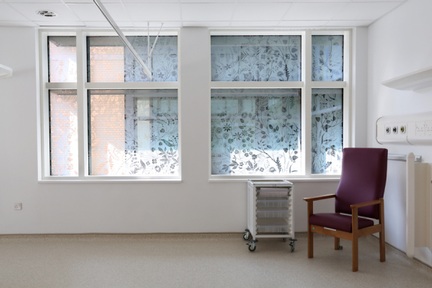
Vital Arts organises participatory programmes for patients and produces commissions to improve the lives of patients in hospitals in the Barts Health NHS Trust.
Arts participation manager, Rachel Louis said: "We work with people of all age ranges and run participatory art programmes, including a film club and visual arts club. Participants and hospital patients work with artists to help create commissions for display in each of the six hospitals in the trust.
"We also offer music and dance programmes as well as speech and language therapies. In the past year we’ve been piloting sessions working with older adults, running a visual arts programme and singing workshops. We try to accommodate as many people as is comfortable and after running the group workshops, we visit people who can’t leave their beds to get them involved in the programmes.
"Vital arts produced bespoke programmes dependent on the needs and interest of participants and we have been working with a dementia specialist in dementia care environments and spending time with people living with dementia.
"Since we started, the range of different participatory services we offer has increased and we are working towards installing more artwork across all six hospitals in the trust by building new relationships with different departments."
Arts Council England supports the idea of art and culture being accessible to everyone and has been working with the Baring Foundation to jointly support a programme for people living in care homes in the UK.
'People have become more aware of the benefits to individuals and organisations'
One of the organisations supported in the programme is Arts for Health Cornwall. The charity is one of four organisations commissioned to work with care homes.
Director of Arts for Health Cornwall, Jayne Howard said: "Depending on funding restrictions, the charity aims to provide two to three activities each week for people in care homes and adults with learning disabilities, community hospitals and memory cafes. Participants vary in age and activities include reading aloud, textiles, mosaics, music, theatre and dance.
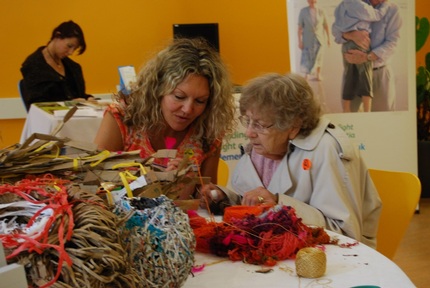
"We work with freelance artists and volunteers to provide art workshops in care homes across Cornwall. The ‘Home Service’ co-ordinates workshops at homes including specialist dementia care home Crossroads House in Scorrier.
"Through a series of creative consultations with adults with mild to moderate learning disabilities, the charity identified a need for a creative a supportive environment for people to engage in art and creative activities. The ‘Journeys of Discovery’ programme provides adults with learning disabilities the opportunity to develop their artistic skills by producing textile work, mosaics, sculptures and illustrations and aims to encourage participants to engage in volunteer work or employment opportunities.
"The programmes are very popular but we rely hugely funding. In recent years, people have become more aware of the benefits to individuals and organisations and there is now a greater demand for non-visual arts, including music, singing and creative writing.”
Speaking about the project, chair of Arts Council England, Peter Bazalgette said: “There are currently over 400,000 older people in residential homes, many of whom are often excluded from the opportunities and benefits that taking part in arts and cultural experiences bring.
“There is a real potential to bring about a step change in the quantity and quality of arts activity that older people in residential care have access to across England and this programme is a great start. And what’s more – the lessons learned from this work will be actively promoted and shared so that other care providers and arts organisations can adopt similar projects."
'Medicine attends to the body, but the arts cares for the person'
Other organisations have started to offer similar methods of 'social prescribing', including NHS funded, Art-Lift. Art-Lift offers patients the chance to work with artists, crafts people, and musicians to improve their health and well-being.
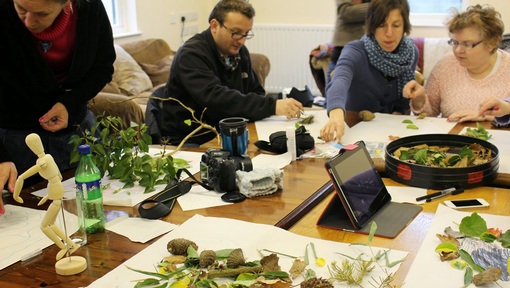
Arts and Minds operates in Cambridgeshire offering 'Arts on Prescription' in the form of weekly art workshops for people living with mental health problems and learning disabilities. People can be referred to Arts and Minds by their local GP to participate in sessions led by artist and supported by a counsellor.
Books on Prescription provides a range of books, recommended by health professionals to patients with different conditions. It supported more than 275,000 people in its first year, many of whom received support for mental health problems.
Writing for The Guardian in December 2014, Mr Bazalgette stressed the importance of social prescribing and the work Arts Council England does to fund research into arts and health. Arts Council England supports new organisation, Arts Enterprise with a Social Purpose (AESOP) was set up to support projects with a purpose, including investigating how dance can help reduce falls in older people.
Mr Bazalgette said: "Medicine attends to the body, but the arts cares for the person. It’s clear that the health service now has to put greater resources into prevention. But this is a wholly beneficial imperative. The national and local government spend on arts and culture is around one fiftieth of the NHS budget. But it’s a small sum that does a lot of good. Not least for health and well-being."
Latest Features News
 25-Nov-19
2019 Election: Boris Johnson leaves social care in 'too difficult box' but Labour vows to end 'crisis'
25-Nov-19
2019 Election: Boris Johnson leaves social care in 'too difficult box' but Labour vows to end 'crisis'
 18-Oct-19
Podcast: Wendy Mitchell and dementia: 'My biggest fear is not knowing who my daughters are'
18-Oct-19
Podcast: Wendy Mitchell and dementia: 'My biggest fear is not knowing who my daughters are'
 27-Sep-19
Exclusive: Care minister backs care workers' call for time off to grieve and attend funerals
27-Sep-19
Exclusive: Care minister backs care workers' call for time off to grieve and attend funerals
 19-Sep-19
Podcast: Gyles Brandreth says poetry helps ward off dementia
19-Sep-19
Podcast: Gyles Brandreth says poetry helps ward off dementia
 30-Aug-19
Edinburgh Fringe funnyman joins comics facing toughest audience at care home gig
30-Aug-19
Edinburgh Fringe funnyman joins comics facing toughest audience at care home gig